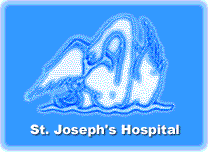Special Services at Home (SSAH)
This program helps parents provide care at home for children with developmental disabilities. Financial help may be provided to get necessary equipment and/or services at home which are not available in your community. It can include the help of a "Special Needs Worker" who is trained in behaviour management or in teaching daily living activities. All requests are individually evaluated and funding is usually provided for one year at a time. It is wise to have a health professional help complete the required forms.
In Ontario, this program is funded by the Ontario Ministry of Community and Social Services (COMSOC).
Handicapped Children's Benefit (HCB)
This is a monthly allowance for children with physical, emotional or mental disabilities and helps parents meet the extra cost involved in raising a child with a disability. For example, this fund can help with parking and transportation costs for special medical appointments. The amount granted will depend on your family income and size.
For information call: 1-800-265-4197
The program is funded by the Ontario Ministry of Community and Social Services (COMSOC).
Family Benefits
Provincial income benefits, called Family Benefits, provide a monthly cash allowance/benefits for individuals and families in need of long-term financial help.
Eligibility is based on the need and the amount will vary with family size, age of children, living circumstances and/or other special needs.
The program is funded by the Ontario Ministry of Community and Social Services (COMSOC).
General Welfare Assistance (GWA)
Any person under 65 years of age and without a source of income, or not able to find employment or is unable to work because of illness or disability may be eligible for GWA. Family income, assets and living circumstances will determine the amount of help granted.
For information, look in the blue pages of your phone book under Regional Services, Department of Social Services.
Special Income Unit
General Welfare Assistance (GWA) programs may include supplementary or special assistance through the Special Income Unit for equipment and or support, for example, respiratory needs, aero chambers, apnea monitors, and funerals.
Eligibility is determined by a needs test, however, if your family is currently receiving GWA (from the region) or Family Benefits (from the province/COMSOC) you automatically qualify for this assistance.
This service may not be available in every region. Check with your local Department of Social Services.
Tax Benefits - Sales Tax
Some products you buy for your disabled child are exempt from provincial sales tax. Items include:
- artificial limbs
- prosthetic/orthopedic appliances
- hearing aids and batteries.
You may also be eligible to get back the sales tax when you buy a motor vehicle. The vehicle must be used in transporting a child with a permanent disability.
For information: 1-800-263-9229
Income Tax Credits
Check with your income tax office or ask for information guidebooks and forms to claim expenses for babies with special mental or physical problems. You might get tax deductions for home renovations, equipment, drugs or transportation your baby needed.
Residential Rehabilitation Assistance Program
Federal or municipal funding may be available if you need to renovate your home. You may need changes to fit special equipment or to improve accessibility for disabled babies.
Health Travel Grants for Northern Residents
Any northern resident who must travel to see specialists or get services can get funding. These grants will reimburse you for mileage. You require a referral from your local doctor, a health card number, and you must live in northern Ontario.
For information call: 1-800-461-4006
|

